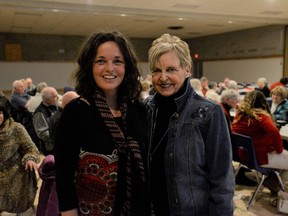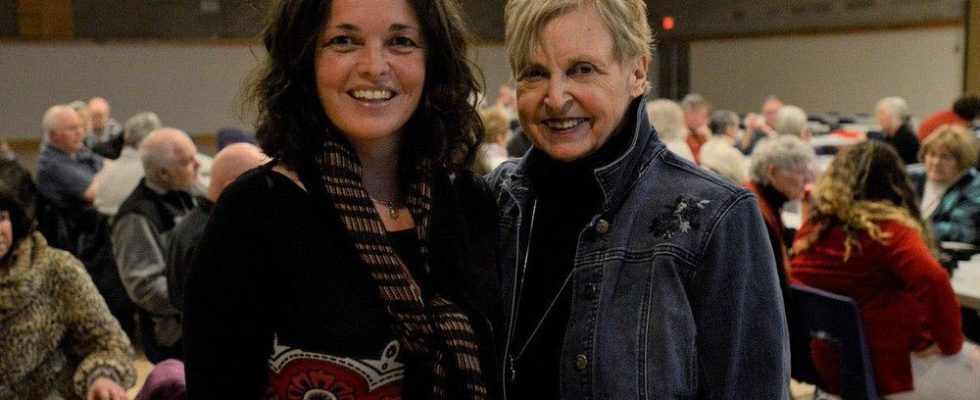
Norfolk County resident Gail Heald-Taylor has grave concerns about the province’s plans to privatize more elements of the health-care system.
It turns out many of her neighbors do too.
Heald-Taylor recently organized a town-hall meeting in Port Dover to talk about the Ford government’s proposed Bill 60, and nearly 100 people turned up.
The bill, entitled Your Health Act, sets out how private clinics would be authorized to perform procedures like cataract surgeries, MRIs, and CT scans to clear the pandemic backlog and reduce delays for patients.
Some hip and knee replacements would be outsourced starting next year, with all services covered by OHIP.
“Premier Ford claims we are poor, our system is broken, it won’t survive, (and) the only option we have is to privatize,” Heald-Taylor told the crowd. “We in this room can be the lightning rod to stop this from happening. We want our public health-care system.”
Residents expressed worries about a further loss of timely access to health-care services in rural areas like Haldimand-Norfolk, where patients must already routinely drive to nearby cities for some surgeries.
“Ontarians are still waiting too long for their treatment, for surgery, and more needs to be done,” Premier Doug Ford said at a news conference when the bill was announced in January.
“The status quo is not working.”
To Heald-Taylor, the proposed model will see the private sector continue to poach from an already-diminishing roster of nurses. She fears some for-profit facilities will overcharge for services and decline to treat patients with more complex cases that require costly post-operative care.
Opposition parties are wary of private clinics trying to upsell patients on services not covered by OHIP, creating a two-tier system.
Haldimand-Norfolk independent MPP Bobbi Ann Brady said the lack of clarity on Bill 60 leaves residents grasping for answers.
“It’s the not knowing that’s the scary part,” she told the town-hall meeting. “When things come very quickly with few details, you have a lot of questions.”
The government promises strict oversight of the clinics, but Brady said there is “very limited information” about how that would work, and the billing model is similarly opaque.
Brady mentioned LifeLabs, a private clinic that performs medical laboratory services such as blood tests, and the Shouldice Hospital, a private hospital specializing in hernia care, as “two very respected models of health care” where services are covered by OHIP.
“If we had that assurance with Bill 60 that that’s what the model is going to look like, I don’t think you’d have anybody in here who’s upset about that,” she said.
“But that confirmation, that affirmation, isn’t there.”
Heald-Taylor said she was motivated to advocate for the public health-care system after being treated at a Hamilton hospital for a heart attack last year.
“I looked up what the hospital received from OHIP for my surgery. It was $100,000. And I walked out not paying a dime,” she said.
“Thank goodness for OHIP, our universal health care in Ontario. Will it still be here in the future?”
— With files from the Toronto Star
JP Antonacci is a Local Journalism Initiative reporter based at The Hamilton Spectator. The program is funded by the Government of Canada.

Comments
Postmedia is committed to maintaining a lively but civil forum for discussion and encourages all readers to share their views on our articles. Comments may take up to an hour for moderation before appearing on the site. We ask you to keep your comments relevant and respectful. We have enabled email notifications—you will now receive an email if you receive a reply to your comment, there is an update to a comment thread you follow or if a user you follow comments. Visit our Community Guidelines for more information and details on how to adjust your email settings.
Join the Conversation